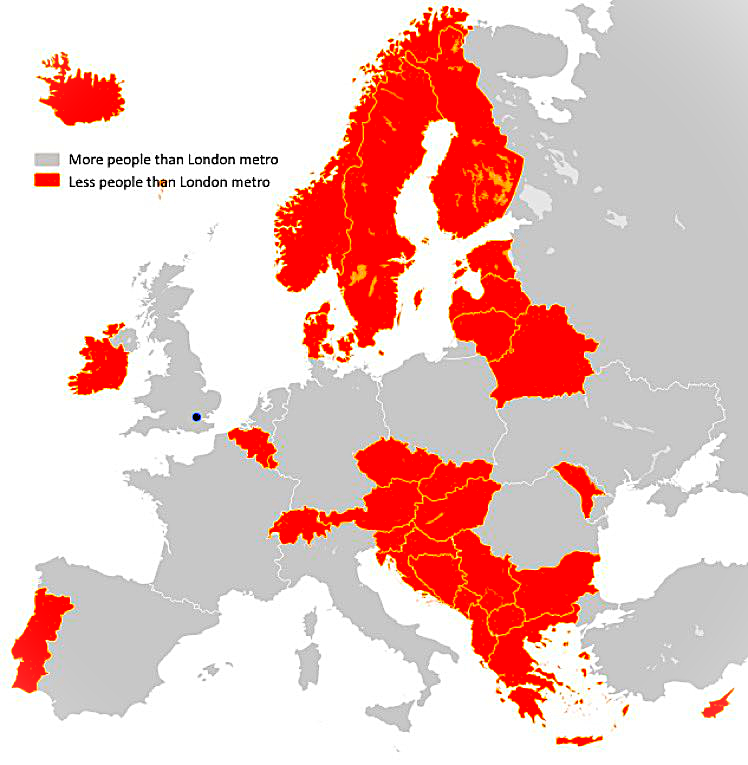Mildly interesting
-
When a crow feels sick… it visits an anthill.
Sounds strange? It’s actually one of nature’s most fascinating healing rituals.
When a crow senses it’s unwell, it will intentionally find an anthill, spread its wings wide, and remain completely still—waiting for the ants to crawl into its feathers.
Why?
Because ants release formic acid—a natural antiseptic that kills bacteria, fungi, and parasites hiding in the bird’s feathers.
This behavior is called “anting”, and it’s been observed not just in crows, but in many bird species.
No medicine.
No vet.
Just pure instinct and nature’s built-in pharmacy.
A brilliant reminder that the natural world is full of intelligent, self-healing systems…
We just need to stop and notice.@Mik said in Mildly interesting:
When a crow feels sick… it visits an anthill.
Sounds strange? It’s actually one of nature’s most fascinating healing rituals.
When a crow senses it’s unwell, it will intentionally find an anthill, spread its wings wide, and remain completely still—waiting for the ants to crawl into its feathers.
Why?
Because ants release formic acid—a natural antiseptic that kills bacteria, fungi, and parasites hiding in the bird’s feathers.
This behavior is called “anting”, and it’s been observed not just in crows, but in many bird species.
No medicine.
No vet.
Just pure instinct and nature’s built-in pharmacy.
A brilliant reminder that the natural world is full of intelligent, self-healing systems…
We just need to stop and notice.Let me introduce you to doTerra… Now, you can purchase a starter kit of essential oils for $95, but for $375, you can become a doTerra Wellness Advisor. Have your friends and family host parties to set them and their friends onto the homeopath of natural wellness, and you will receive a commission in addition to discounts on your own orders. And should any of them decide they would like to become wellness advisors, then you will earn a portion of their revenue as part of a pyramid of wellness!
-
@jon-nyc said in Mildly interesting:
@Renauda said in Mildly interesting:
Jon, that’s just sick.
We call that ‘kink shaming’.
Perverts.
-
Fun fact: The swimming pool on The TItanic is still full of water.
-
Fun fact: The swimming pool on The TItanic is still full of water.
@Doctor-Phibes 555
-
@Mik I was thinking the same. Nature is pretty good about timing things when they are ready.
-
South Park airs possibly the most offensive scene of all time.
-
Cool map above. Somewhat related, the below map, each color is ~14% of the world population

-

When an elephant needs to be transported by plane from one country to another—for example, from India to the United States—its crate is filled with… tiny chicks.
Yes, you read that right: little, fragile chicks.
Why?
Because despite their enormous size, elephants are deeply afraid of causing harm. Throughout the entire flight, the elephant stands perfectly still, not daring to move, so as not to risk stepping on a single chick.
That’s how the plane stays balanced.
And for the elephant, it’s the first test of its noble nature.Fascinated by this behavior, scientists have studied the elephant’s brain and discovered spindle cells—rare neurons also found in humans.
These are associated with self-awareness, empathy, and complex social perception.In other words, an elephant is not only physically huge; it’s an emotional giant, too.
It feels, understands, and acts with silent wisdom.Leonardo da Vinci, deeply fascinated by nature, once wrote about elephants:
“The elephant embodies righteousness, reason, and temperance.”
He also noted:
The elephant enters the river and bathes with a certain dignity, as if wishing to purify itself from all evil.
If it finds a lost person, it gently guides them back to the right path.
It never walks alone: always in a group, always led by a guide.It is modest.
Mating happens only at night, away from the herd, and before returning to the group, the elephant bathes.
If it encounters another herd on its way, it gently moves them aside with its trunk, careful not to hurt anyone.But perhaps the most touching thing is this:
When an elephant senses the end is near, it leaves the herd and goes to die alone, in a secluded place.Why?
To spare the younger ones the pain of watching it die.
Out of modesty. Out of compassion. Out of dignity.
Three rare virtues.
Even among humans. -

When an elephant needs to be transported by plane from one country to another—for example, from India to the United States—its crate is filled with… tiny chicks.
Yes, you read that right: little, fragile chicks.
Why?
Because despite their enormous size, elephants are deeply afraid of causing harm. Throughout the entire flight, the elephant stands perfectly still, not daring to move, so as not to risk stepping on a single chick.
That’s how the plane stays balanced.
And for the elephant, it’s the first test of its noble nature.Fascinated by this behavior, scientists have studied the elephant’s brain and discovered spindle cells—rare neurons also found in humans.
These are associated with self-awareness, empathy, and complex social perception.In other words, an elephant is not only physically huge; it’s an emotional giant, too.
It feels, understands, and acts with silent wisdom.Leonardo da Vinci, deeply fascinated by nature, once wrote about elephants:
“The elephant embodies righteousness, reason, and temperance.”
He also noted:
The elephant enters the river and bathes with a certain dignity, as if wishing to purify itself from all evil.
If it finds a lost person, it gently guides them back to the right path.
It never walks alone: always in a group, always led by a guide.It is modest.
Mating happens only at night, away from the herd, and before returning to the group, the elephant bathes.
If it encounters another herd on its way, it gently moves them aside with its trunk, careful not to hurt anyone.But perhaps the most touching thing is this:
When an elephant senses the end is near, it leaves the herd and goes to die alone, in a secluded place.Why?
To spare the younger ones the pain of watching it die.
Out of modesty. Out of compassion. Out of dignity.
Three rare virtues.
Even among humans.@Mik said in Mildly interesting:
When an elephant senses the end is near, it leaves the herd and goes to die alone, in a secluded place.
Why?
To spare the younger ones the pain of watching it die.
Alternatively, it could be because it just can't take any more of their bullshit.




